RECORDING AND DOWNLOADS FROM THE WORKSHOP
The National Metrology Institute of South Africa (NMISA) in partnership with the Joint Food and Agricultural Organization - International Atomic Energy Agency (FAO-IAEA) Centre and the African Food Safety Network (AFoSaN), facilitated a virtual Africa Food Safety Workshop for further learning while engaging with representatives from the public and private food safety testing laboratories, regulators, and quality infrastructure institutions.
This workshop brought together world-leading African scientists and experts with the aim to promote standards, reliable testing and international cooperation for better public health and trade. The discussion panels included representatives from mandated food monitoring laboratories from across Africa’s Regional Economic Communities. The workshop incorporated presentations and discussions on:
- Africa’s Food Safety Regulatory Framework,
- Sanitary and Phytosanitary Measures
- Standards and guidelines within the AfCTFA
- Regional efforts in contributing to setting standards/Maximum Residue Levels (MRLs)
- Intra-regional and extra-regional trade challenges: Lessons for AfCFTA
- Reliable food safety testing laboratory services
WORKSHOP DOWNLOADS:
1. Download AFSI and food safety tracking in the BR_AFSC 2021 - Wezi Chunga-Sambo.pdf
2. Download AFSW 2021 - Alignment of National and Regional Codex efforts to AfCFTA - 4th August 2021-Hakim Mufumbiro.pdf
3. Download CFS AFSW 2021 - Prof Pieter Gouws.pdf
4. Download PPPs and SMEs - Dr Chris Muyunda.pdf
5. Download NMISA Handout 1.pdf
6. Download NMISA Handout 2.pdf
7. Download NMISA Handout 3.pdf
* Further presentations to be made available soon *
DETAILS OF THE SPEAKERS:
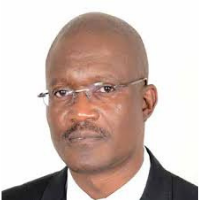 |
Mr Ndwakhulu Mukhufhi
NMISA Chief Executive Officer (CEO)
Ndwakhulu Mukhufhi is a South African with extensive experience in renewable energies; biodiesel production; essential oils; biotechnology research; laboratory Management; agro-processing; Enterprise development and Business development; Technology commercialisation in line with Technology Business Incubation practices; as well as experience in the management of high tech-based institutions. Ndwakhulu holds a MSc in Biochemistry and Molecular Biology and a post-graduate diploma in project management. In addition to English, he speaks 5 South African indigenous languages. Ndwakhulu became the CEO of The National Metrology Institute of South Africa (NMISA) in 2013. In 2019, in response to a national and regional call for NMISA to provide more services directly to the public, he started the Regional Reference Institute (RRI) as part of a new Applied Metrology division. In addition to the mandate of NMISA to maintain the national measurement standards in line with the International System of Units (SI), the RRI provides reference analysis in the case of measurement disputes, maintains and develops primary methods for chemical analysis to certify reference materials for the region (SADC and African specific commodities and food), conduct proficiency testing schemes and provides an internationally accepted analytical service. Internationally Ndwakhulu is a member of the CEC, the Committee for the Election of the CIPM (the International Committee for Weights and Measures) and actively participates in the activities of the International Bureau of Weights and Measures (BIPM) and the Regional Metrology organisations AFRIMETS and APMP.
|
Dr. Godfrey Bahiigwa
Director of the Department of Agriculture, Rural Development, Blue Economy and Sustainable Environment (DARBE)
DARBE works with AU Member States, Regional Economic Communities (RECs) and other partners to boost rural economic development and agricultural sector development by supporting the adoption of strategies, policies and programmes on agriculture, environment and natural resources.
Before joining the African Union, Dr. Bahiigwa was the Head of IFPRI’s Eastern and Southern Africa Office (ESAO) based in Addis Ababa, Ethiopia. He was the founding coordinator of Regional Strategic Analysis and Knowledge Support System (ReSAKSS) node for Eastern and Central Africa based at the International Livestock Research Institute (ILRI) in Nairobi and later as the ReSAKSS Africawide Coordinator at International Food Policy Research Institute (IFPRI). Prior to joining IFPRI he was the Director of Uganda’s Plan for Modernization of Agriculture (PMA) Secretariat. He also worked with Uganda’s Economic Policy Research Center for eight years as a Senior Research Fellow, focusing on agricultural policy research and linking it to government policy and strategy formulation.
Dr. Bahiigwa holds a PhD in Agricultural Economics from the University of Missouri-Columbia (USA); a Master’s degree in Agricultural and Applied Economics from the University of Minnesota (USA); and a Bachelor’s degree in Agriculture from Makerere University, Uganda.
|
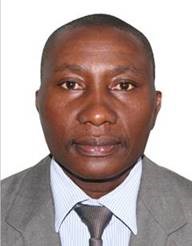 |
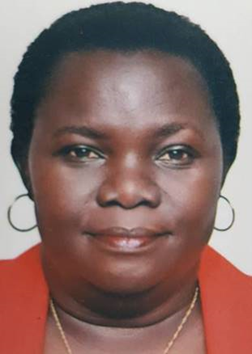 |
Diana Akullo
Senior Policy Officer – Sanitary and Phytosanitary (SPS) – African Union Commission
Ms Akullo facilitates policy harmonisation, partnership building, and resource mobilization to implement programs for causing Africa’s positive transformation within the context of the Comprehensive Africa Agriculture Development Programme. She coordinates Sanitary and Phytosanitary (SPS) activities and has experience in agricultural policy and strategy analysis and trade negotiations and has been instrumental in supporting the Africa Continental Free Trade Area (AfCFTA) processes relating to Sanitary and Phytosanitary measures. She has previously worked with the Association for Strengthening Agricultural Research in Eastern and Central African (ASARECA) and the National Research Organization (NARO) of Uganda. She is a PhD fellow with Walden University, USA and holds a Masters Degree in Development Studies from the University of East Anglia, Norwich, United Kingdom and a Bachelors Degree from Makerere University, Kampala, Uganda. She has attained professional qualifications from the World Trade Organization (WTO) Institute for Training and Technical Cooperation on international trade; the International Agricultural training Centre, Galilee College (Israel) diploma in Agribusiness: Marketing and Export Management; Gender Mainstreaming, Champions for Change Leadership, Procurement, Financial Management, Environmental and Social Safeguard for World Bank and European Union Projects, Project Management Training, Leadership and Team Management.
|
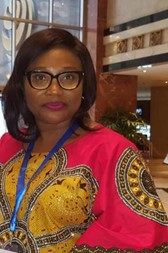 |
Dr Chinyera Ikechukwu-Eneh
Assistant Chief Veterinary Officer/Deputy Director
Department of Veterinary & Pest Control Services
Federal Ministry of Agriculture & Rural Development
Chinyere Ikechukwu-Eneh, DVM, MSc, is a Veterinarian with over 16 years of experience as a Regulatory Official. She received her Doctor of Veterinary Medicine degree from the University of Nigeria, Nsukka and Master in Veterinary Epidemiology and Public Health from the Royal Veterinary College, University of London.
She is a Deputy Director/Head of the Certification Branch in the Department of Veterinary & Pest Control Services, Federal Ministry of Agriculture & Rural Development where she oversees import and export of animal and animal products. She is also the WTO-SPS Enquiry Point (Animal Health) for Nigeria.
Dr Ikechukwu-Eneh is currently serving on several Technical Committees and Expert Working Groups, namely; National Sanitary & Phytosanitary Committee; African Experts meeting on Food Import and Export Inspection and Certification System hosted by AU-IBAR; National Trade Facilitation Committee; National Codex Committee; Inter-Ministerial Technical Committee on Zero Reject of Agricultural Commodities; Working group on the development of an Integrated Export Control Plan for Nigeria; National Action Committee on the African Continental Free Trade Area Agreement.
|
Mufumbiro Hakim Baligeya
Principal Standards Officer
Uganda National Bureau of Standards
Mr Hakim Baligeya Mufumbiro is the Head of Food and Agriculture Standards at the Uganda National Bureau of Standards (UNBS) where he is responsible for the coordination of the development, harmonization and promotion of standards in the area of Food and Agriculture at the national, regional and international level. He holds a Bachelor's and Master of Science in Food Science and Technology from Makerere University, Kampala, Uganda. Prior to joining UNBS in 2009, he worked in the food industry in Uganda for 4 years especially in the soft drinks and beverages, fruit juices, fats and oils and confectionery sectors. He has also trained extensively and implemented quality and food safety management systems. He has over 15 years’ experience in key areas in Quality Infrastructure especially industrial development, trade competitiveness in global markets and food safety.His key competencies include policy formulation, legislation and standardization; food and nutrition safety and quality management; food control systems development, product regulation and market access; organizational leadership and project planning and management.He currently serves as Chairperson of several national and regional Committees including the EAC Standards Management Committee, ARSO Standards Management Committee as well as Coordinator for the EAC Codex Forum and the Codex Coordinating Committee for Africa (CCAFRICA). |
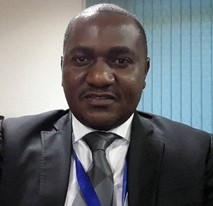 |
Chris Muyunda
Chairman, Comprehensive Africa Agricultural Development Programme (CAADP)
Non-State Actors Coalition (CNC)
Dr. Chris Muyunda is Chairman of the Governing Council of the Comprehensive Africa Agricultural Development Programme (CAADP) Non-State Actors Coalition (CNC). He previously served as Country Manager of Challenges Worldwide, CEO of the Alliance for Commodity Trade in Eastern and Southern Africa (ACTESA), as Senior Agricultural Advisor for COMESA and as Team Leader of Economic Growth Unit at USAID/Zambia. Chris Muyunda works on economic growth and empowerment issues covering agro-trade policy, energy provision, technology promotion, agro market development, market access, market linkages and capacity building issues for SMEs in all business sectors, farmer organisations, traders and processors. Chris Muyunda is a lead agribusiness, trade, commodity marketing and policy professional. An initiator and pioneering champion of the AU CAADP Roundtable Process in Africa, and a strong advocate of the CAADP Pillar II (trade capacities, agribusiness and corridors approach agenda), Chris is fully conversant with the key issues in agricultural trade, market access, rural infrastructure and related issues. Matters of food quality and food safety have ranked high in Chris’ work to help achieve expanded opportunities for increased economic growth, enhanced production and productivity, food security, increased regional trade and expanded agro exports from Africa to international markets.
|
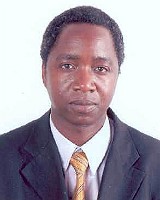 |
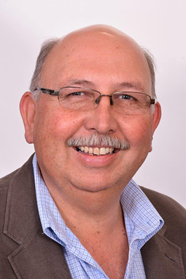 |
Prof Pieter Gouws
Department of Food Science, Faculty of AgriSciences Centre for Food Safety,
Stellenbosch University
Prof Pieter Gouws is a professor of Food Microbiology at the Centre for Food Safety, in the Department of Food Science at Stellenbosch University. He had spent some time as an international research fellow at the University of Nottingham and is also the South African representative on the International Commission of Food Microbiology and Hygiene (2008 to present). His current research interests focus on novel and innovative applications for the detection and control of unwanted bacteria in food and processing environments, improvement of food safety and food quality, novel processing technologies and antimicrobial resistance of foodborne bacteria. He is the author of various scientific papers and train undergraduate and postgraduate students in the field of Food Microbiology and Food Safety. He is also the Director of the Centre for Food Safety at Stellenbosch University.
|
Matlou Setati
Executive Head: Food Safety Initiative (FSI)
Consumer Goods Council of South Africa
Matlou Setati is the Executive for the Food Safety Initiative (FSI), a division of the CGCSA. She joined the CGCSA in 2017 from the Department of Agriculture, Land Reform and Rural Development (DALRRD).
Matlou has over 15 years of experience in the South African food and agricultural industry, and 10 years’ service in public office at the Department of Agriculture, Land Reform and Rural Development (DALRRD).
Matlou participates in national and international food regulatory bodies and has also participated at the United Nations Economic Commission for Europe, where she was Vice-Chairperson of the Dry and Dried Produce Committee from 2014 – 2016.
She has in-depth knowledge of the food industry and her public service experience has equipped her with a vast understanding of the national and international food law spheres.
Matlou holds a National Diploma in Food Technology from Pretoria Technikon, a Bachelor of Technology in Food Technology from the Tshwane University of Technology and a Post Graduate Diploma Applied Science from the Lincoln University, New Zealand.
She is currently studying towards a Master’s Degree in Food & Nutrition Security with the Stellenbosch University.
|
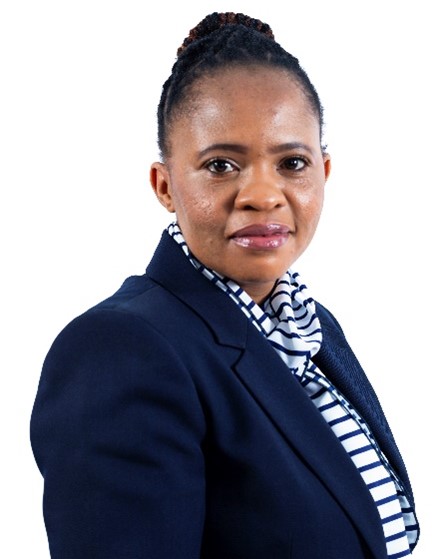 |
 |
Wezi Chunga-Sambo
Program Officer, Partnership for Aflatoxin Control in Africa (PACA)
Company/Institute: African Union Commission
Wezi Chunga-Sambo is a Program Officer for the Partnership for Aflatoxin Control in Africa (PACA) at the African Union Commission. Wezi coordinates the implementation of regional and country PACA activities in the COMESA, EAC and SADC regions. In PACA focus countries, she supports the development of multi-stakeholder, multi-faceted national strategic plans, their implementation as well as providing technical support among others. Wezi has contributed to the continental work of the African Union such as the development of the Africa Food Safety Index (AFSI) and continues to support its implementation in AU Member States. Prior to joining AUC-PACA, Wezi was a Regional CAADP Consultant working for CAADP Pillar III at the Africa Centre for Food Security (AFS) at the University of Kwa-Zulu Natal, South Africa. Wezi’ s background is in contemporary food studies and she holds a Master’s Degree in Food Policy from City University in London, UK. |
The event also featured interesting panel discussions on a wide variety of food safety matters as detailed in the program below.
Download the workshop program: Download Programme_AFSW_ 2021.pdf












